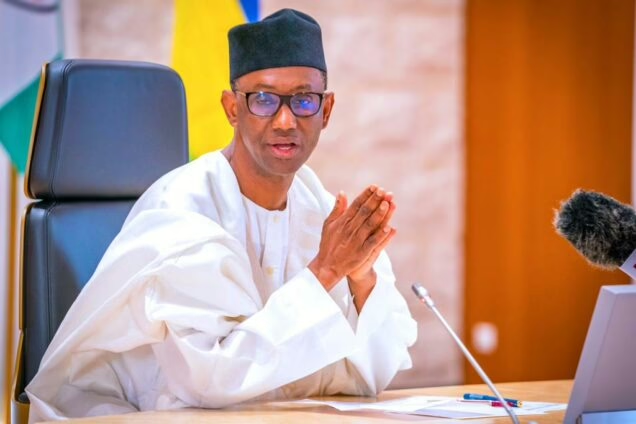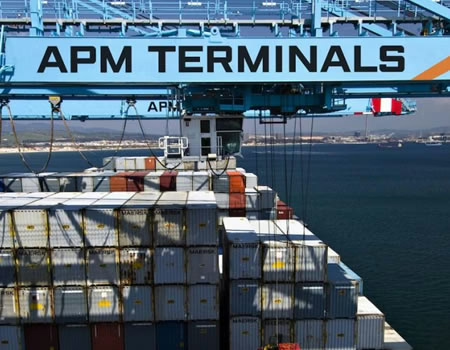Farmers
Farmers have predicted tougher days ahead for Nigerians concerning the ongoing food inflation crisis in the country.
This is as the farmers blamed subsidy removal which increased the cost of transporting farm produce, and insecurity, which has continued to hinder farming as some of the reasons for the food crisis.
The farmers, while urging Nigerians to brace up for more price hikes of food produce, noted that the food crisis may continue till August.
In recent times, Nigerians have been voicing their concerns over the hike in the prices of food.
While the food crisis is not new to the country, the ongoing crisis has caused so much uproar with the Nigeria Labour Congress making it a major argument for its demand for increased minimum wage.
According to a report by in 2022, the National Human Rights Commission, raised concerns over the rising food crisis in Nigeria, saying that it had worsened access to healthy and nutritious food, especially among Internally Displaced Persons and vulnerable groups, leading to an increase in widespread hunger and low quality of life.
The commission also attributed the situation to several factors, including “insecurity chasing farmers from their farms, coupled with many farmlands submerged in water due to flooding in some parts of the county.”
In solidarity, the Federal Government expressed concern over the continuous rise in the prices of food and other commodities, which has resulted in protests in Niger and Kano states.
In 2024, Northern traditional rulers and the Nigerian Bar Association decried the hardship in the country, which was said to be precipitated by the fuel subsidy removal and had resulted in higher transport costs and food inflation.
Also, as Nigerian workers commemorated the 2024 May Day, Organised Labour expressed concern about the rising food prices and fuel scarcity in the country, saying that the current situation threatened the survival of workers.
They equally lamented the harsh economic situation which had been compounded by the twin burdens of the electricity tariff hike and high fuel prices.
Speaking with the National President, All Farmers Association of Nigeria, Kabir Ibrahim, said tougher days were ahead for Nigerians concerning the food crisis.
He, however, cautioned the Federal Government against the knee-jack reaction of opening the borders and flooding the market with imported foods, warning that such a decision could erode the little gains recorded in the agricultural sector.
Ibrahim also explained that the hikes in prices of farm produce such as tomato, pepper, and yam may not be unconnected with the seasonal variations, noting that the prices of some food items usually went up around this period.
He said, “Vegetables, characteristically, will be sold for higher prices at this time, because this is not the season. For those who do open production, the rains will not allow those to germinate very well. So, there is always a scarcity around this time and September. After that, the price will start coming down, because some people who do open production can also bring some.
“So November through January, February, and even March, you’ll find very good prices, but don’t forget the challenges of the exchange rate of the naira. That is also happening. Don’t also discount the cost of transporting the produce. All these farmers will have to factor in selling to the middlemen, and the middlemen also buy to make profits. Those are some of the reasons.”
He also noted that while insecurity remained a fundamental issue preventing farmers from ensuring food security, other issues including the high exchange rate must be addressed to curb the ongoing crisis.
He said, “Insecurity is a factor in food security in Nigeria. Nobody can discountenance it, but there was more insecurity in 2022, for instance. That was even before the floods challenge. These challenges were not as much in the early part of 2023 compared to the time this administration came on board. Some of these things are also dependent on the times. The exchange rate is of course important and remains a factor as well. The removal of subsidy on all petroleum products and the increased costs associated with that in transportation and distribution of farm produce is also a major issue.”
He stressed that a major factor in the ongoing crisis was the cost of food and not scarcity. “The question is affordability. It is available but not affordable. Therefore, with the high cost, there is no food security. Food security means you should be able to afford food within reasonable limits,” he said.
Ibrahim, however, reiterated the need for the government to avoid trying to solve the ongoing crisis by opening the border to mass food importation, noting that it could destroy the gains already recorded in the agricultural sector.
Also speaking with , the National Secretary of the All Farmers Association of Nigeria, Dr Yunusa Halidu, stated that low productivity was the cause of the hike in prices of farm produce, noting that the Federal Government should do more to bring down the high cost of farming inputs.
“When we talk of inputs, we are talking about tractors and others. They are very expensive, and other inputs such as fertilisers. From last year to now, prices have hovered between N35,000, N45,000 and N50,000, and farmers cannot afford them. Three to four years ago, tractors cost about N10m to N15m, but today, they cost about N35m to N40m in the same country. Who can afford to buy it? Government can’t buy tractors for famers, and farmers can’t afford to buy tractors. They have to go back to the way of doing it which is our usual culture. That is affecting production.”
Also blaming insecurity for the crisis, he said, “Today, insecurity is wreaking havoc, with farmers being kidnapped. Now, the government can’t fight insecurity.”
He urged the government to work with farmers to end the food crisis.
“We need government to come in and discuss with us. The government should sit down with the farmer’s group. We are the umbrella body of all the commodity associations in Nigeria, and our structure is from national down to other levels. The government cannot regulate what it does not contribute to. The government cannot tell me to go and sell my yam or milk in the market at a certain price. What was their contribution to it? They did npt contribute a dime. Government should work hand in hand with farmers.”
‘Nigeria needs specialised agric institutions’
Meanwhile, the Speaker of the House of Representatives, Abbas Tajudeen, said that the establishment of more specialised agricultural institutions in the country will accelerate the nation’s quest for food security.
Abbas stated this on Friday in Abuja while declaring open a public hearing of the House on nine agriculture-related bills.
Represented by the Deputy Speaker, Benjamin Kalu, Abbas explained that three of the bills seek the amendment of the federal universities of agriculture Act 2010 to establish Federal University of Agriculture in Oyo, Delta and Enugu states, while the remaining six bills are seeking amendment of the Agricultural Research Council of Nigeria Act, 2004, to pave way for the establishment of agricultural colleges and institutes in Ekiti, Bauchi, Enugu, Delta, Nasarawa and Ogun states.
A statement issued by the Chief Press Secretary to the Deputy Speaker, Levinus Nwabughiogu, quoted Kalu as saying that, “To fast-track the Federal Government’s drive for food security, modern and mechanised farming and diversification of the economy, the need for more specialised agricultural institutions that are innovative and research-based has become imperative.
“This understanding informed the listing of agricultural reforms in the 10th House legislative agenda to address the nation’s high cost of food items. We believe that if these bills are well processed with robust inputs from you, they would strengthen the nation’s quest for food sufficiency and socio-economic development of our country.”
Abbas also tasked agricultural stakeholders to make valid contributions that would enable the House to arrive at an informed conclusion on the bills.
“Let me state that public hearing is a key legislative programme designed by the parliament to ensure that the feelings, sentiments and aspirations of the critical stakeholders and other members of the public are reflected in the laws made by the legislature.
“It also helps the parliament to be better resourced for better-quality laws. Accordingly, I urge you to ensure that your contributions are profound, relevant and vital to help guide the House to administer the right legislative actions to improve on these nine agriculture-related bills.
“As it is evident, with nine agricultural-related bills waiting to be evaluated by the stakeholders for enhanced outputs, today’s public hearing is particularly extensive in scope and proportions. Your commitment is therefore sought towards making this event a huge success,” he said.
The Spokesman of the Ministry of Agriculture and Food Security, Mr Gbenga Morounfolu, said that the Ogun State government had been actively working to tackle food insecurity through various initiatives.
Moronfolu, on Friday said that the state government had continued to engage the farmers and had been supporting them from time to time all in a bid to boost food production in the state.
He said, “Less than two weeks ago, about 8,800 smallholder farmers across the 20 local government areas of the state received free agricultural inputs and assets, as well as infrastructural support via OGUN-CARES FADAMA to further boost the outputs of farming enterprises.”










